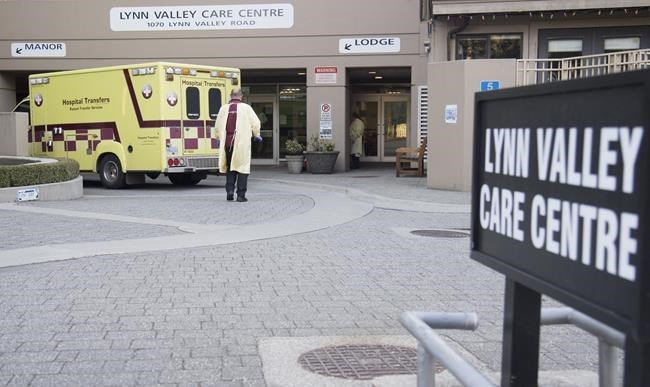B.C. Provincial Health Officer Dr. Bonnie Henry and Health Minister Adrian Dix announced Tuesday an easing of restrictions on visits to nursing homes.
Residents in long-term care and assisted living facilities will now be allowed one designated visitor to come to the home and visit in a designated visiting space.
“Easing restrictions in Phase 2 and Phase 3 has been about finding the balance.
“Now, the timing is right to do the same thing for long-term care and assisted living facilities,” said Henry, noting the particular challenge of those with dementia.
“The situation in long-term care has been at the centre of our COVID-19 pandemic,” said Dix, adding visitations are vital for well-being.
“It’s not just about extending life but living life and that involves being engaged with the ones we love,” said Dix.
The decision to allow limited visits comes after health authorities were ordered in March to close all non-essential visitations after it became apparent COVID-19 was extremely deadly and dangerous for seniors and those with compromised immune systems. Health authorities were also ordered to have healthcare providers be designated to one home only. Dix said that has meant 8,848 workers have been assigned to a single site. Such rules remain in place for workers.
However, as personal protective equipment has become more readily available and the province’s COVID-19 case count has become low, Henry said it was appropriate to allow some visits.
“It has been a difficult time to be separated from the ones you love,” said Henry.
But, “We are going to start slowly,” said Henry, referring to the one visitor rule, which will allow up to 32,000 visitors into homes.
Henry said there would be province-wide requirements for visits. First, facilities can have no active cases. Second, there must be a written safety plan at each facility, including pre-booking for visits. Third, visitors will be required to wear a mask and facility staff will train them how to use it properly.
Tests will not be required for visitors, noted Henry, when asked by media. “It’s not something we need right now,” she said, adding the most important thing is for visitors to self-monitor their symptoms and to stay away if they have any. As well, visitors should maintain heightened hygiene.
In addition to family and friend visits Henry said personal care service providers, such as hairdressers, would also be allowed into homes, with guidance from the facility’s safety plan.
Henry said expanding visits would be a decision for the future based on how the first stage of visits occurs. “We start small as safe as we can and then we expand,” said Henry, although she said more visitors could come by August.
Dix announced $165 million in new funding for up to three new full-time staff at 681 homes to help better manage the visits. He also announced $26.5 million to address costs incurred by homes due to changes in services to ensure physical distancing and virus-control. This is on top of $240 million in previously announced funding to raise care standards.
Dix said the cost of workers being designated to just one home is estimated between $10 million and $15 million.
In B.C., to June 29 according to the B.C. Centre for Disease Control, the median age of COVID-19 deaths is 85. No one under age 47 is known to have died from COVID-19 in the province.
Of the 174 deaths in B.C., 151 have been over age 70. Residents in nursing homes account for 124 of those deaths and of 2,904 tested positive cases, 1,009 have been found in nursing homes.
The median age of hospitalization is 69.
The single most deadly nursing home outbreak in B.C. has been at Langley Lodge, where 24 residents have died. Lynn Valley Care Home in North Vancouver saw 22 deaths between March and May.



